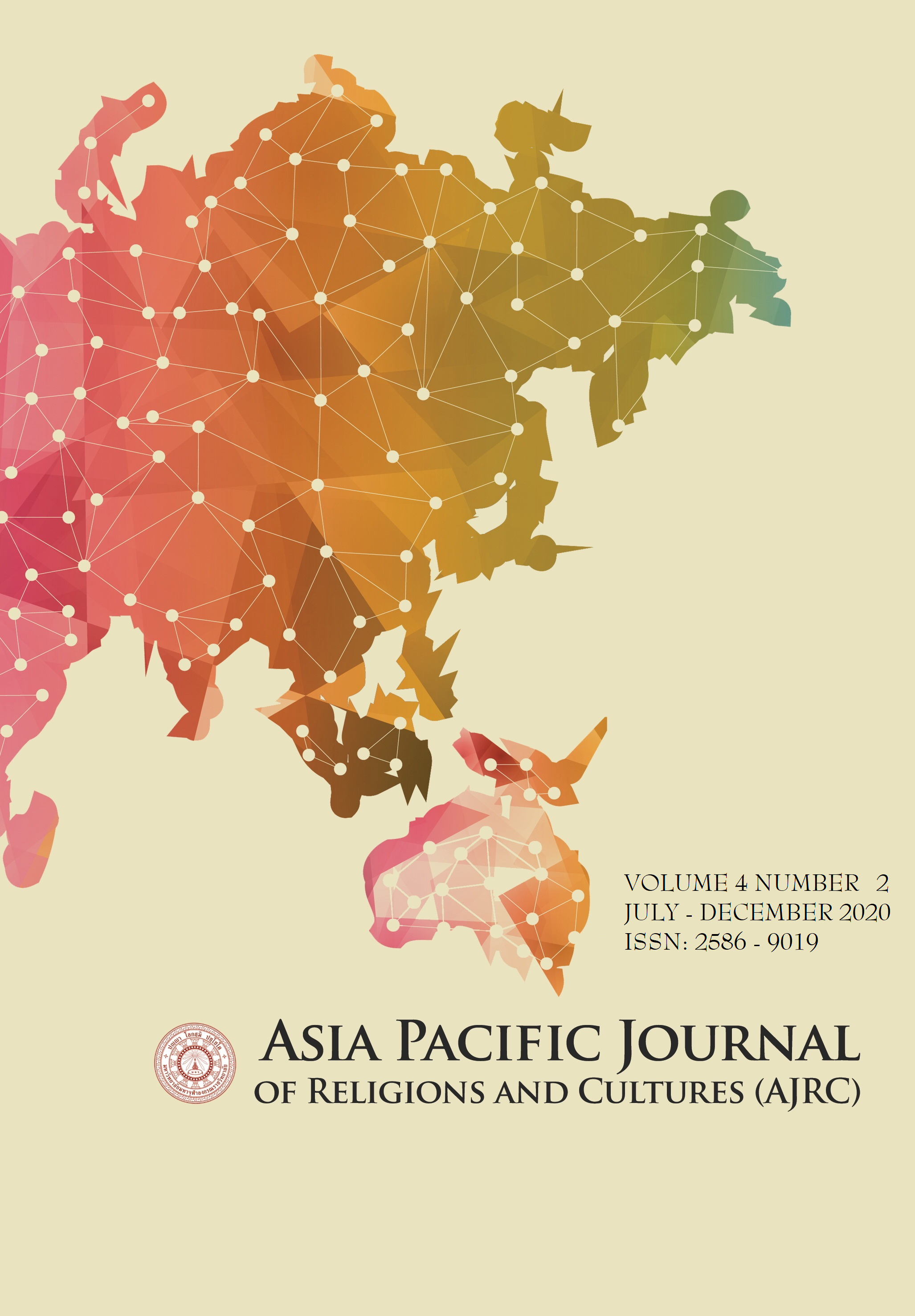Buddhist Ethics: The Concepts and Principles to Strengthen of Strong Family and Social Thailand In The 21st Century
Main Article Content
Abstract
The aims of this research are; (1) to study the concepts and principles of family and social strengthening in the 21st century (2) to study the concepts and principles of family and social strengthening in Thai Buddhism, and (3) to integrate the principles of family strengthening and Buddhist society.
The results showed that Thai families today have changed according to social conditions. The role of Thai family and social institutions and strengthening consists of promoting good family relationships, create love, warmth, and cultivate a good and accurate lifestyle, contribute to social responsibility. And Buddhist ethics have been using the 4 principles of balanced livelihood (Samajivita) (1) having a equality of faithful, (2) having a equality of parity, (3) having a equality of sacrifice, and (4) having wisdom can always be separated from the wrong. It is essentially strengthening the family and society.
The Buddhist Ethics can integrate and strengthen Thai families and society in their lives. 3 levels (1) The basic level are the five precepts and the five Dharma (2), the middle level are four Sangkhahawatthu and six directions (3), the high level is two Dhammalokpala and the eight Eightfold Path
This advanced ethics is ideal for mental enhancement training. Causing shame and fear of sin is the way to lead to a noble person of Buddhism. The Buddhist ethics at the beginning and middle level is a knowledge that is suitable for everyone, capable of integrating and strengthening the Thai Institute of Family and Society in the 21st century to be healthy, orderly, stable and sustainable.
Article Details
References
Bantheing P. P. (2004). Sociology. Bangkok: Odean Store Publishing House.
Boonyong, C. (1995). Family Life Education. Bangkok: Ramkhamhaeng University Publishing.
Thepsavat, N. (2000). Analysis of major problems in Thai society. (2nd ed). Bangkok: Thammasat University Printing .
Phra Brahmagunabhorn (P.A. Payutto). (2007). The Life Statute. (4th ed). Bangkok: National Buddhist Publisher.
Phra Brahmagunabhorn (P.A. Payutto). (2009). Buddhism Revised and Expanded Edition. (11th ed.). Bangkok: Mahachulalongkornrajavidyalaya University Press.
Phra Brahmagunabhorn (P.A. Payutto). (2008). Dictionary of Buddhist. (12th ed.). Bangkok: Mahachulalongkornrajavidyalaya University Press.
Lamjiakthet, W.(1987). The development of family relationships in the perspective of married women. Bangkok: Thammasat University.
Inthsara,W. (2005).Buddhist Ethics. Bangkok: Thong Kwaw Printing House.
Maphobsukh, W. (2007).Improving quality of life and society. Bangkok: Publishing Center for Academic Promotion.


